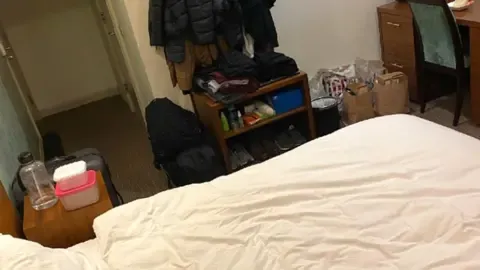Several UK councils are pressing ahead with legal action to prevent asylum seekers being housed in local hotels, even after the Court of Appeal overturned a temporary injunction. The decision allows asylum placements to continue at The Bell Hotel in Epping, a case seen as a potential precedent for other areas.
Epping Forest District Council, which secured the original injunction, said it is exploring all options, including appealing to the Supreme Court. Reform UK has called on all 12 councils it controls to consider legal challenges against hotel housing for asylum seekers.
Kemi Badenoch encouraged Conservative-run councils to “keep going” with legal action, noting that guidance would be issued to Conservative councillors following the ruling. “Every case has different circumstances, and I know good Conservative councils will keep fighting for residents,” she said.
Border Security and Asylum Minister Dame Angela Eagle said the government plans to “stop using hotels, which aren’t a sustainable solution, by the end of this Parliament.” She added that the Court of Appeal decision allows the government to phase out hotel housing “in a planned and orderly fashion.”
West Northamptonshire Council, controlled by Reform UK, confirmed it would continue legal action concerning hotels in the area. Councillor Mark Arnull said the current use of hotels “places unreasonable and unsustainable strain on local services.” Hertfordshire’s Broxbourne Council, led by Conservatives, also plans to pursue further legal measures. Councillor Jim Clune said some hotels were being used contrary to their original planning permission.
Epping Forest had argued that The Bell Hotel posed a public safety risk and breached planning laws by not functioning as a proper hotel. Chris Whitbread, council leader, said the council would meet soon to plan next steps and consider a Supreme Court appeal, although barrister Chris Daw KC indicated the chances of success were low.
Public demonstrations have continued outside The Bell Hotel. Two men were charged following protests on Friday, one for assaulting an emergency worker and another for failing to provide a specimen. A third man arrested on suspicion of violent disorder remains in custody. Thousands have protested against asylum seeker housing over the summer, often countered by opposing demonstrations.
Lord Justice Bean, in his Court of Appeal ruling, stated that the High Court’s earlier decision granting the injunction was “seriously flawed in principle.” He noted the injunction failed to account for the impact on relocating 138 asylum seekers. He also cautioned against citing protests as justification for legal action, saying it could provoke further disorder.
The Refugee Council’s chief executive, Enver Solomon, emphasized that the ruling does not address ongoing challenges. He said hotels remain costly for taxpayers and expose asylum seekers to community tensions and far-right targeting. He urged the government to implement a faster plan to end hotel use.
Labour peer Lord Falconer acknowledged that the government was taking steps in the right direction but stressed more action was needed. “If we don’t as a government do it, then you’ll see opinion polls raised yet further for Reform,” he said.
Home Office data shows 32,059 asylum seekers were housed in hotels in the year to June, a slight increase but below the September 2023 peak of 56,000 under the previous Conservative administration. A record 111,000 asylum applications were submitted in the same year, marking a 14% rise from the prior year, although the government is reportedly processing more cases than before the last general election.







